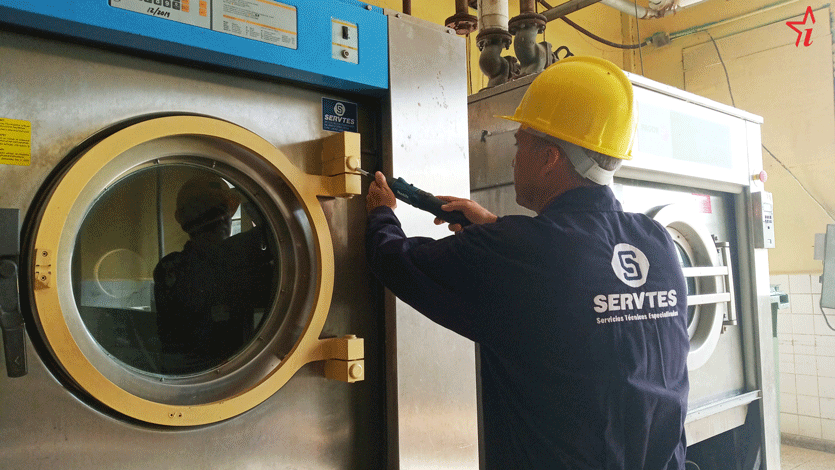
Since in June of this year Micro, Small and Medium Enterprises (MIPYMES) entered the ecosystem of economic actors in the country, the Ministry of Economy and Planning has offered detailed information on their definition, operation, tax treatment and necessary procedures.
Now that, from this Monday, September 20, the applications for the creation of MSMEs are open, organized by calls in relation to social interest, we leave you a summary of the basic ideas in this regard.
1- How is a MSME different from a CNA?
Both non-state actors have legal personality, equal powers, access to credit and government financing, they can engage in the same activities, while they are authorized, and they can have establishments in various territories of the country.
Their similarities are essential; however, they have important differences. In a CNA, the cooperative ownership indicates that the partners have equal participation, and distribute the profits in relation to the contributed work. This also makes your tax system more beneficial. Meanwhile, a MIPYMES is governed by private property, and the profits of each partner will correspond to the social contributed capital.
Cooperatives can grow indefinitely, with a minimum of three members, but their hired workers must not exceed ten percent of the number of members.
MIPYMES are created from a minimum of one partner, and can hire workers up to a limit of 100 employees, a figure that corresponds to a medium-sized company.
The number of employed ones (which includes employees and partners) is calculated by the amount of contracted work. The total hours are divided by the number of workers and by the 40 hours per week established by the labor code as a maximum for each one. That number, added to that of the partners, is the number of employed people.
2- What capital is needed to create a MIPYMES or a CNA?
The contributions of the partners for the creation of a MIPYMES can be goods (machines, tools, etc...), money (national currency) or rights (trademarks, patents), and are established in the MYPIME statutes.
There is no minimum share capital limit established by law, however, the contribution of money is necessary for company operations such as payment of salaries and purchase of raw materials. The contribution of each partner determines their participation within the company, and, at the same time, separates the social assets from the personal assets of the partners.
In the case of CNAs, the main contribution of the partners is their individual work. The initial working capital is also made up of assets, money or rights, which are recorded in the statutes. All partners have equal rights and duties, regardless of their contribution to the initial working capital.
For the creation of these non-state forms, it is necessary to open a Demand Deposit Account (in person or via Internet), which certifies the funds contributed by the members. The deposit certification is presented at the notary's office for the constitution procedures. Once the MIPYME or the CNA is constituted, the funds are transferred to your checking account.
3- How much do the procedures cost?
A total of 1 210.00 CUP is paid at the notary's office for CNAs and 2 110.00 CUP for MSMEs. In the Mercantile Registry, there are five procedures for a total of 3,070.00 CUP, and in the ONAT two procedures for 50.00 CUP. In total, the creation of a CNA has a cost of 4,330.00 CUP, and that of a MIPYME 5,230.00 CUP.
4- How to apply via Internet?
Creation requests can be made through the Economic Actors Platform of the Ministry of Economy and Planning. In this way, it is possible to check the status of the application in the 39 business days it takes for the incorporation of the legal entity. The platform also indicates to the applicants when they must carry out each procedure at the notary's office, the Mercantile Registry, the bank, etc...
5- What taxes are applied to each economic actor?
CNAs are required to pay income taxes, which take into account several factors in the calculation. The per capita tax profit results from subtracting from the total income the exempt minimum per member (39 120.00 CUP), taxes and expenses. This profit is multiplied by the number of partners, and a tax rate ranging from 10 to 45 percent for profits of less than 10,000.00 CUP to more than 50,000.00 CUP. The result will be the tax to pay.
The taxes mentioned above correspond to the collection of 10 percent of the income from retail sales or services to the population (wholesalers are not taxed) and 1 percent for the contribution to local development.
Others may be added for the concept of ground transportation, advertising, and use of workforce or contribution to social security.
The MSMEs will pay a tax of 35 percent of the profits, 10 percent of the monthly income from retail sales, and 1 percent of the total income in contribution to local development, 5 percent of the total remuneration accrued to their workers and the 14 percent of the same total for contribution to social security.
Regarding personal income, members of MSMEs will pay between 3 and 20 percent of their income from 39,120.00 CUP and up to more than 350,000.00 CUP, in addition to a special contribution to social security.
Hired workers in MIPYMES and CNA will pay a personal income tax of 3 percent of what is received above 3 260.00 CUP, and 5 percent of the excess if they exceed 9 510.00 CUP.
On September 20, the date of the entry into force of the legal regulations (the decree laws from 44 to 49 of 2021), the Ministry of Economy and Planning announced on its Telegram channel that until 5:30 pm on that day, 75 requests for the creation of MSMEs and CNAs had been received on the platform. Invasor knows that, at least, one of them was made from Ciego de Ávila. Wait for a future approach to this topic.




